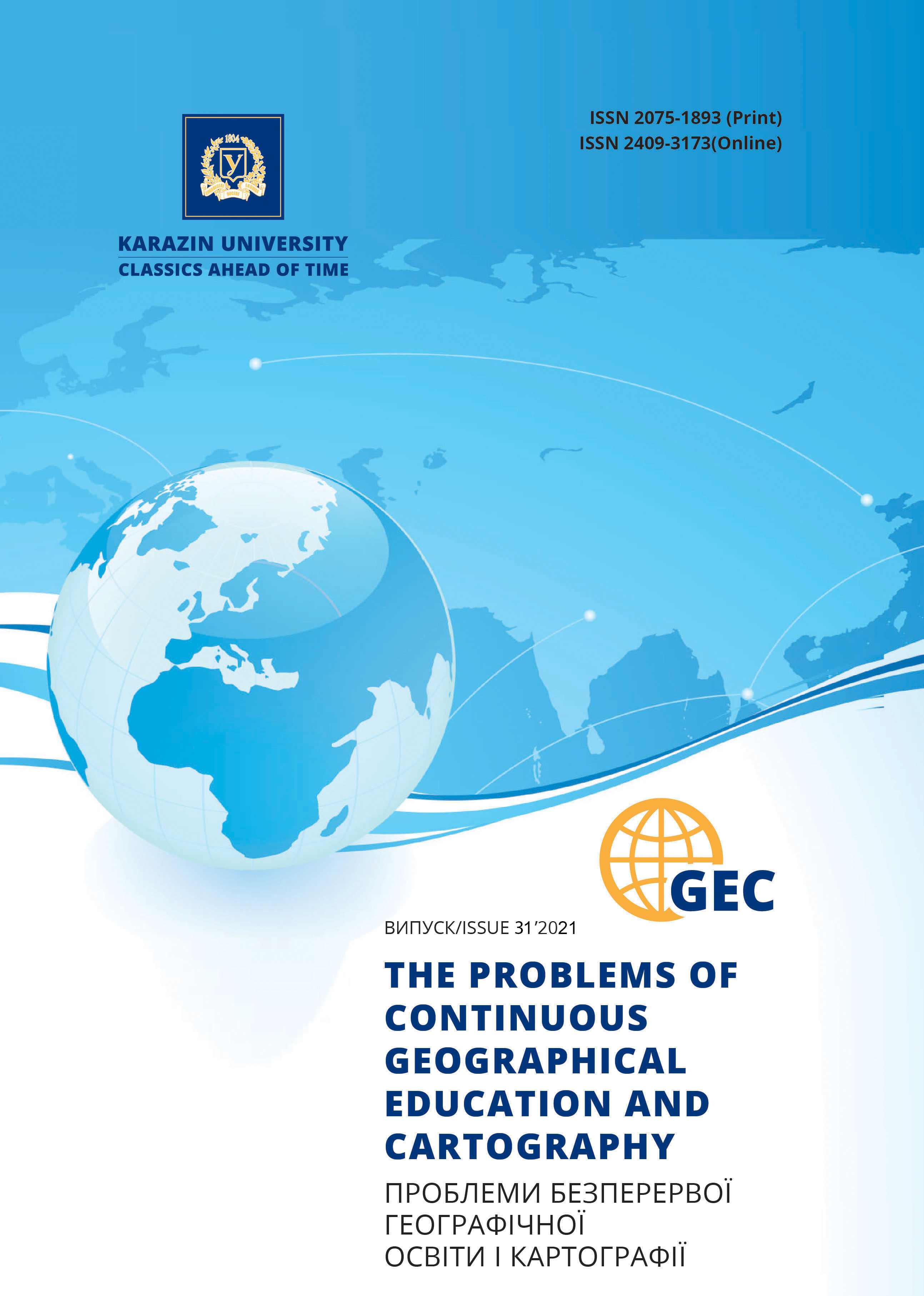Pupils' attitude to school geography and motivational factors of its study
Abstract
The purpose of the article is to diagnose the attitude of pupils to geography classes at general educational institutions and identify the main motivating factors of its learning, depending on the pupils’ age and place of residence.
Main material. The diagnosis of motives for studying geography was preceded by a clarification of the attitude of pupils to this subject. Pupils were asked to name their favourite school subjects and the results of the survey were used to calculate the rating of disciplines. For sixth-graders in rural and urban schools, geography ranked first, for seventh– and eighth-graders, and for rural ninth- and tenth-graders, it ranked second. For city ninth- and tenth-graders, geography took third place in the ranking of school subjects.
The article presents the rating of school geography among other subjects on the basis of a questionnaire survey conducted in 2018/2019 academic year among 1163 respondents, who are the pupils of 6-11 grades at general educational institutions in Lviv region. The research analyzes positive and negative motivational factors of learning geography, depending on age and place of pupils’ residence. The results are interpreted in the context of the popular theory of self-determination developed by E. Deci and R. Ryan.
Conclusions and further research. The research, conducted among the pupils studying geography at school, in a particular region of Ukraine, showed the highest rating of this subject among other school disciplines and the positive attitude towards it (more than 75% of the pupils who participated in the study). The degree of interest in geography is affected by the age of the pupils and the type of area in which the pupils live: the highest rank of favourable attitude to the subject was shown by rural pupils and pupils who are studying natural courses of the discipline (grades 6–7).
The leading factors of a positive attitude to geography depend on the content of this subject and modern forms of studying it, which ultimately contributes to the formation of internal motivation for cognition.
The results of an empirical study can be used to develop psychological, pedagogical and methodological models for teaching geography in different classes of general educational institutions.
Downloads
References
Zakon Ukrayiny` (2020). Pro povnu zagal`nu serednyu osvitu [Law of Ukraine. On General Secondary Education]. Available at: https://osvita.ua/legislation/law/2232/
Andreeva, O.T. (2017). Motivacija uchebnoj dejatel'nosti na urokah geografii [Motivation of educational activities at geography lessons]. Available at: https://infourok.ru/motivaciya-uchebnoy-deyatelnosti-na-urokah-geografii-1901542.html
Il'in, E.P. (2008). Motivacija i motivy [Motivation and motives]. Sankt-Peterburg: Piter, 427–429.
Suvorova, L.B., Shimlina (Rjabceva), I.V. (2017). Izuchenie motivacii podrostkov k obucheniju v processe shkol'nogo geograficheskogo obrazovanija [Studying the motivation of teenagers to learn in the process of school geographical education]. Pedagogical Rducation in Russia, 1, 74–8.
Tadeyeva, T.V. (2012). Teoriya samodeterminaciyi Disi-Rayana i navchal`na moty`vaciya [Disi-Rayan's self-determination theory and educational motivation]. Scientific Notes of V. Gnatyuk TSMU. Ser.: Pedagogy, 3, 213–221.
Donert, K., Charzyński, P. (2005). Changing Horizons in Geography Education. Available at:
https://repozytorium.umk.pl/bitstream/handle/item/351/Changing%20Horizons.pdf
Ryan, R.M., Deci, E.L. (2009). Promoting Self-Determined School Engagement: Motivation, Learning and Well-Being: Handbook of Motivation at School. New York – London: Routledge, 171–196.





